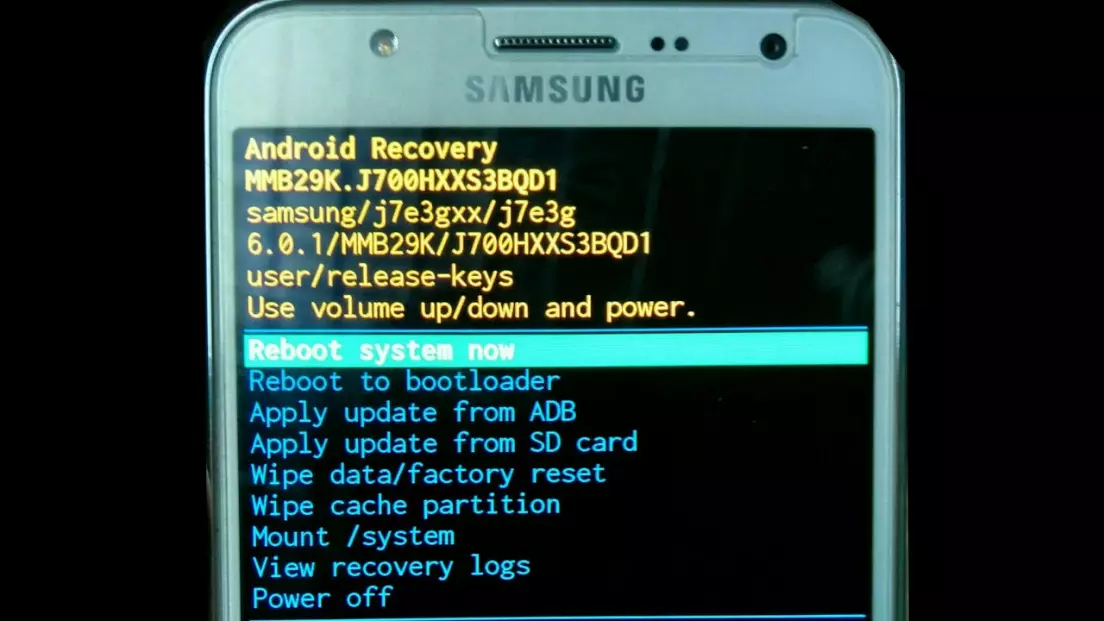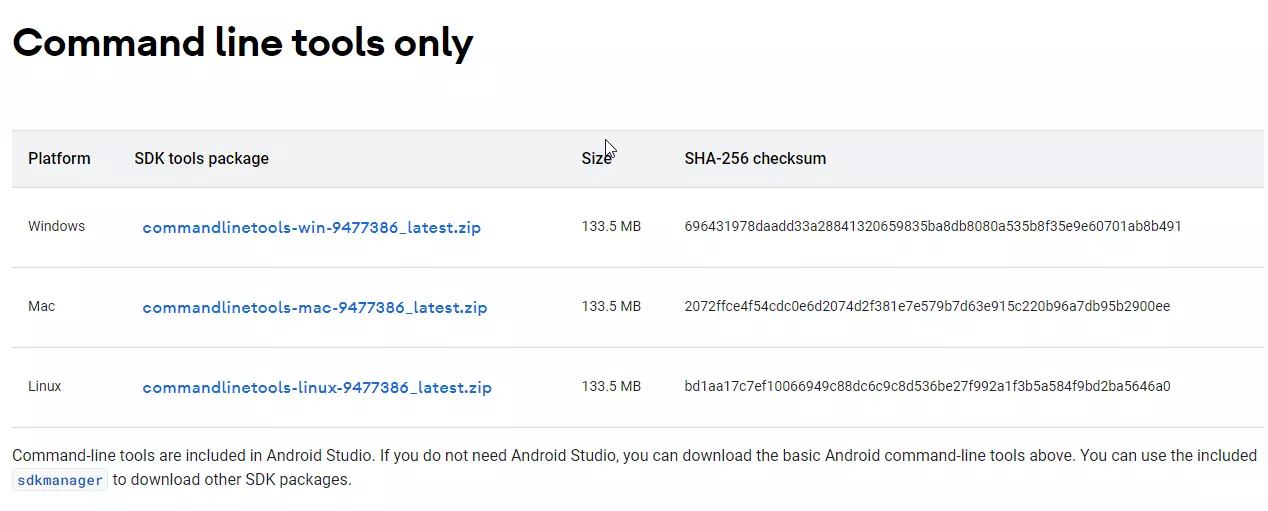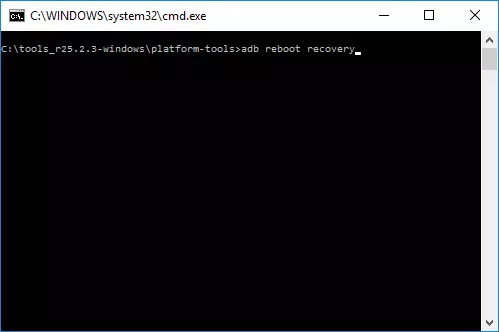How to Open Recovery Mode in OPPO N1 mini
Recovery is a recovery mode for Android-based smartphones. There are two recovery modes: factory mode (built-in) and software mode (via third-party software). This mode is useful when it is not possible to boot the phone using the normal boot process. For example, if the phone is infected with viruses, the update has errors in the operating system, or the firmware needs to be installed. Activating recovery mode in the OPPO N1 mini is quite simple, but you need to know the right combination of keys.
Other types of recovery
Recovery by the manufacturer cannot break anything. At most, the user will lose their data if they accidentally reset to factory defaults. However, problems can occur with modified versions.
There are two versions: Clockworkmod Recovery (CWM) and Team Win Recovery Project (TWRP). The functionality of both modes includes dangerous features - gaining root privileges, installing custom firmware and kernels.
There are useful and safe features in the modes, such as backing up and restoring from a previous backup. However, it is possible to perform these actions without a restore mod, so installing modified versions is simply not justified.
Of course, we don't want to discourage you from finding out for yourself, especially if you need root privileges or need to install custom firmware. However, we strongly advise you not to do this, as it will void your phone's warranty at the very least, and make it inoperable at the worst.
Normal start in recovery mode OPPO N1 mini
First switch off the machine, as recovery mode can only be activated when the machine is switched on. You do not need to enter any codes, just press the correct combination of keys to activate the mode:
- Press the power button and the volume down button.
- Press the power key and the volume up key.
- Press the Power key and the Volume up and down keys.
Recovery mode is operated using the Volume Down and Volume Up buttons. The power key has the function "OK" or "Select". All text is always in English, which is the main language of the Android interface.

Accessing recovery mode with ADB
ADB - Android Debug Bridge. This is a standard command line extension that can be used to control a device connected to a computer. More specifically, it sends commands that are executed on the smartphone rather than the computer. Installing ADB is not easy, but you can either follow the instructions on the official Android Studio website or find a step-by-step guide online. The link to the official download page is https://developer.android.com/studio/index.html. On the website, go to the very bottom and look for "Command line tools only".

You will also need to install additional drivers. We recommend that you use the generic package that you can download from this link - https://adbdriver.com/downloads/. However, the manufacturers themselves also provide such drivers, but you will need to find them first. The phone must also be in debug mode for ADB to work.
After installing any third-party software, simply open the console in administrator mode from the ADB utility folder and type "adb reboot recovery". The phone will automatically restart in reboot mode.

What's wrong with using software from third parties?
There is special software that allows you to start the recuperator with a single click. But this only takes up space, as the same action can be performed with two keystrokes. And using a terminal emulator, as many websites recommend, is pointless.
Instead of Recoup mode, an Android icon appears with an exclamation mark in a triangle and "No Commands".
The error can be corrected by pressing the power and volume buttons. Press once for a few seconds. The Recoup menu will open.
By the way, another common problem is that after rebooting, a message appears saying that there is no operating system and that fast boot mode has been started. This means that you have activated the fast boot function in this mode. To deactivate the mode, press and hold the power button for 10-15 seconds.
Share this page with your friends:See also:
How to flash OPPO N1 mini
How to root OPPO N1 mini
Hard reset for OPPO N1 mini
How to reboot OPPO N1 mini
How to unlock OPPO N1 mini
What to do if OPPO N1 mini won't turn on
What to do if OPPO N1 mini doesn't charge
What to do if OPPO N1 mini doesn't connect to PC via USB
How to take a screenshot on OPPO N1 mini
How to reset FRP on OPPO N1 mini
How to call recording on OPPO N1 mini
How to update OPPO N1 mini
How to connect OPPO N1 mini to TV
How to clear the cache on OPPO N1 mini
How to backup OPPO N1 mini
How to disable ads on OPPO N1 mini
How to clear storage on OPPO N1 mini
How to increase font on OPPO N1 mini
How to share internet on OPPO N1 mini
How to transfer data to OPPO N1 mini
How to unlock bootloader on OPPO N1 mini
How to recover photos on OPPO N1 mini
How to record the screen on OPPO N1 mini
How to find blacklist in OPPO N1 mini
How to set up fingerprint on OPPO N1 mini
How to block number on OPPO N1 mini
How to enable auto-rotate on OPPO N1 mini
How to set up or turn off an alarm on OPPO N1 mini
How to change ringtone on OPPO N1 mini
How to enable battery percentage on OPPO N1 mini
How to turn off notifications on OPPO N1 mini
How to turn off Google assistant on OPPO N1 mini
How to turn off the lock screen on OPPO N1 mini
How to delete app on OPPO N1 mini
How to recover contacts on OPPO N1 mini
Where is the recycle bin on OPPO N1 mini
How to install WhatsApp on OPPO N1 mini
How to set contact photo in OPPO N1 mini
How to scan QR code on OPPO N1 mini
How to connect OPPO N1 mini to computer
How to install SD card in OPPO N1 mini
How to update Play Store in OPPO N1 mini
How to install Google Camera in OPPO N1 mini
How to enable USB debugging on OPPO N1 mini
How to turn off OPPO N1 mini
How to charge OPPO N1 mini
How to use the camera on OPPO N1 mini
How to find lost OPPO N1 mini
How to set password on OPPO N1 mini
How to turn on 5g on OPPO N1 mini
How to turn on VPN on OPPO N1 mini
How to install apps on OPPO N1 mini
How to insert a SIM card in OPPO N1 mini
How to enable and configure NFC on OPPO N1 mini
How to set time on OPPO N1 mini
How to connect headphones to OPPO N1 mini
How to clear browser history on OPPO N1 mini
How to disassemble OPPO N1 mini
How to hide an app on OPPO N1 mini
How to download YouTube videos on OPPO N1 mini
How to unblock a contact on OPPO N1 mini
How to turn on the flashlight on OPPO N1 mini
How to split the screen on OPPO N1 mini
How to turn off the camera sound on OPPO N1 mini
How to trim video on OPPO N1 mini
How to bypass the Google account on OPPO N1 mini
How to fix black screen on OPPO N1 mini
How to change the language on OPPO N1 mini
How to open engineering mode in OPPO N1 mini
How to find and turn on a voice recorder on OPPO N1 mini
How to make video calls on OPPO N1 mini
OPPO N1 mini sim card not detected
How to transfer contacts to OPPO N1 mini
How to enable/disable «Do not disturb» mode on OPPO N1 mini
How to enable/disable answerphone on OPPO N1 mini
How to set up face recognition on OPPO N1 mini
How to set up voicemail on OPPO N1 mini
How to listen to voicemail on OPPO N1 mini
How to check the IMEI number in OPPO N1 mini
How to turn on fast charging on OPPO N1 mini
How to replace the battery on OPPO N1 mini
How to update the application on OPPO N1 mini
Why the OPPO N1 mini discharges quickly
How to set a password for apps in the OPPO N1 mini
How to format OPPO N1 mini
How to install TWRP on OPPO N1 mini
How to set up call forwarding on OPPO N1 mini
How to empty the recycle bin on OPPO N1 mini
Where to find the clipboard on OPPO N1 mini
How to Open Recovery Mode in Another Phones
